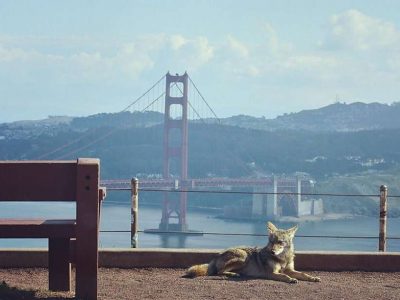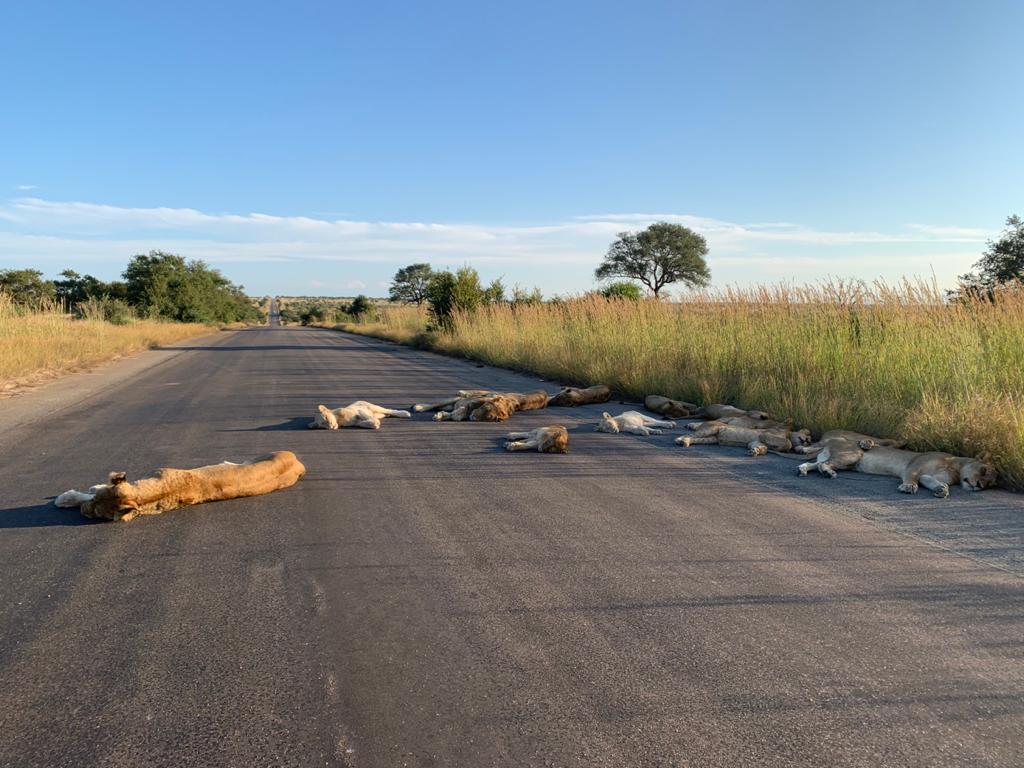

Two months into a global pandemic, COVID-19 has wreaked havoc on human society. But outside of the monumental human suffering and disruption to our livelihoods, Earth continues to turn at the same rate, and the natural ecosystem continues to operate as it normally does. Except this time, the human influence on the natural environment is noticeably less present. As a result, urban wildlife and other animals have been impacted in different and unprecedented ways.
In the context of the tragedy that is this pandemic, many have reported on the increased presence of animals and wildlife in human spaces as a result of shelter-in-place policies:
- Wild mountain goats roamed free in the streets of Llandudno, Wales while residents sheltered in place.
- In South Africa, lions in Kruger National Park are lounging on roads that are usually busy with traffic from safari-goers.

- Closed to tourists, Yosemite National Park is reportedly teeming with wildlife, leading to increased sightings of bobcats, bears, and coyotes in areas normally occupied by campers.
- Off the coast of Southern France, fin whales were spotted close to the Calanques national park in shallower waters typically used for human activity, including shipping and recreation.
- The Washington Post also compiled some of these stories and others, noting the prevalence of wild boars in the streets of Barcelona and a mountain lion spotted in a tree in the residential streets of Boulder, Colorado.
- In other “silver lining” news, marine life seems to be thriving, with loggerhead turtles expected to have a surging nesting season due to fewer turtle deaths from boating accidents and reduced garbage and other plastics in nesting habitats.
(Note that some similar stories you may have heard about animals during the Coronavirus pandemic are untrue. Natasha Daly with National Geographic debunks false COVID-19 stories of dolphins in the canals of Venice Italy, drunken elephants in a village in Yunnan, China, and an orangutan in a Florida sanctuary washing her hands with soap to mimic her keepers. You can read her articles here and here.)
However, other species of animals have been or may be negatively impacted by the Coronavirus pandemic, in the same or different ways than humans:
- Poachers in South Africa have exploited the absence of tourism, causing increased numbers of rhinoceros poaching incidents since the lockdown.
- With fewer food resources available from restaurants and trash receptacles, rats in urban areas around the world are reportedly becoming vicious, likely leading to cannibalism and infanticide.
- Several tigers and lions in the Bronx Zoo have tested positive for Coronavirus and were exhibited showing symptoms of illness.
- If the pandemic lasts longer than the few months that were initially anticipated, conservationists and other field scientists may be unable to continue their efforts to collect vital data or take other actions to protect endangered wildlife from human activity, invasive species, or natural stressors.
- These impacts also arrive in the context of a new study that climate change is predicted to cause more severe ecosystem die-offs than previously anticipated. (The actual publication in Nature can be found here.)
My reaction to this news is to think about the different ways that human activity impacts wildlife, and which impacts might we take for granted. Our mere physical presence alone deters many species of animals from even being seen in or near our habitats. The various externalities we impose on the world’s ecosystems have a tangible impact on many species, even in more remote places. Other species rely on us for survival, so any catastrophes that impair our ability to take appropriate conservation actions could threaten extinction. And as the pandemic has shown, all of these human impacts can change relatively quickly when the extent of human activity diminishes suddenly and drastically.
More narrowly, the stories of animals exploring some of the areas we typically occupy raises questions about the role of wildlife in urban environments. For example, what efforts—if any—should we take to make spaces more habitable for wildlife? More broadly, can urban spaces simultaneously function as viable habitat for both humans and animals? Should they?
I’m not sure I have answers to these questions or others, but they fit into the general topic of my previous post about equity in access to urban parks or green spaces. In many ways, human access to parks is a similar issue to access to natural habitat for urban wildlife. Each is relevant to the question of what our role should be in the urban environment—and what an ideal urban environment even should look like.
Note that the City of Los Angeles is actively seeking to address the issue of urban habitat in its Green New Deal, which has a chapter called Urban Ecosystems & Resilience that seeks to create more green space and habitat both inside and outside developed areas. In light of the effects of sheltering in place during the pandemic, I now wonder how the city’s strategy might be able to incorporate measures to create more opportunities for animals to live in harmony with humans in our urban spaces.
Although the Coronavirus pandemic has been a tragedy for human society, the effects of the pandemic on wildlife provide an opportunity to reconsider our relationship with animals in a sustainable urban future.
The post Despite COVID-19, This Earth Day Brings Animals Closer to Human Society appeared first on Legal Planet.
By: Benjamin Harris
Title: Despite COVID-19, This Earth Day Brings Animals Closer to Human Society
Sourced From: legal-planet.org/2020/04/23/despite-covid-19-this-earth-day-brings-animals-closer-to-human-society/
Published Date: Thu, 23 Apr 2020 14:30:36 +0000
Vist Maida on Social Me
Website Links
Maida Law Firm - Auto Accident Attorneys of Houston, by fuseology
PRESS RELEASE COVID-19 UPDATES
http://www.kake.com/story/41966303/covid19-maida-law-firm-is-open-and-fully-operational-during-this-crisis
https://legal-planet.org/wp-content/uploads/2020/04/920x920-400x300.jpg

No comments:
Post a Comment